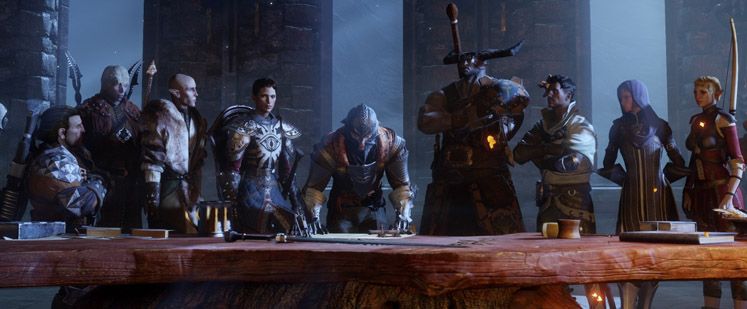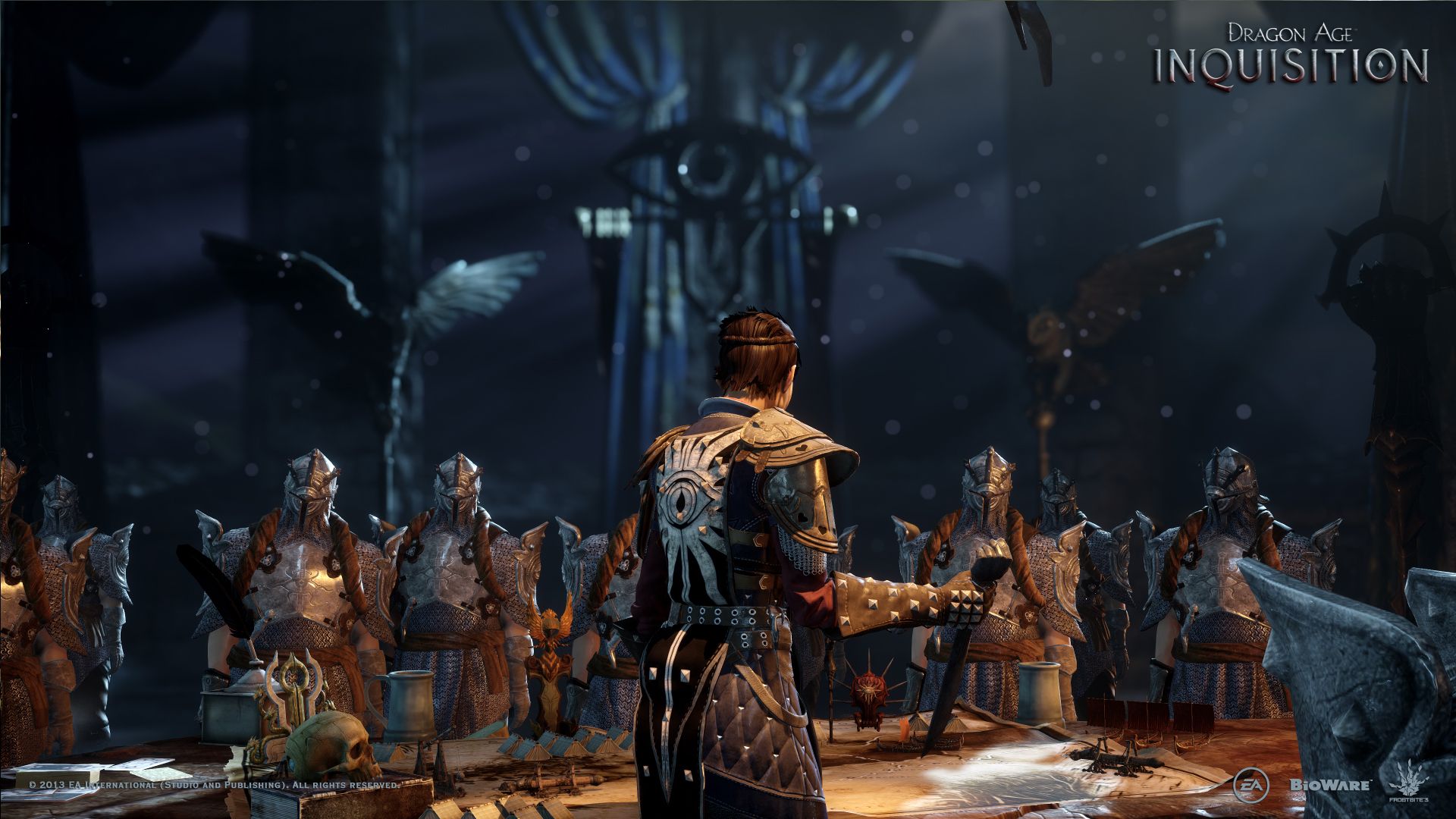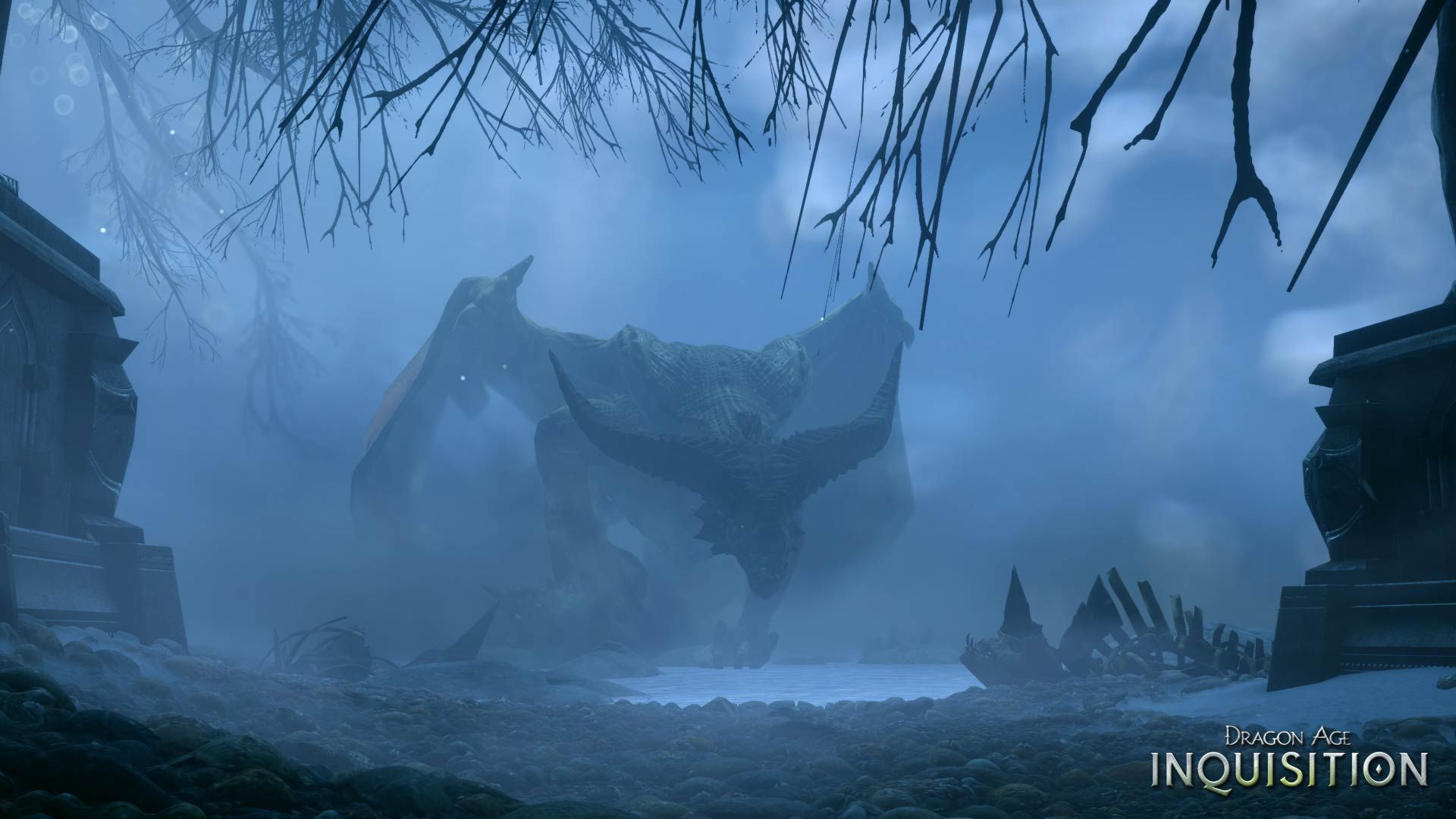The world Dragon Age players once knew is no longer safe. Several factions have broken out into an all out civil war, the likes of which threaten to tear peaceful civilization apart. It's up to a small group to gain support of the masses and save the humanity from itself ...by killing everyone who doesn't agree with them. Oh, and in the mean time we have dragons!
Where's Hiccup when you need him?
There's certainly no dragon-taming in Dragon Age: Inquisition, the sequel to the popular role playing game series three years in the making; just good ol' fashioned slaying played out in new and impressive ways. Early looks at the game show precisely what Bioware has been up to these last three years of development. Just one area, according to developers, is larger than all of Dragon Age: Origins, populated with an attention to detail and graphics prowess that even jaded AAA haters would stare at, slack-jawed.
Though it matters much more what's underneath those glossy drapes and 1080p functionality (for the PS4, that is), and Bioware is gift-wrapping features like Christmas Eve. The gameplay seems deeply imbedded in the lore of the series. The influence you exert through various missions will show up in the game's "world master" system, adding more supporters to your Inquisition in frequent stomping grounds. The flip side is also true; over-hunt bear, for example, and you've just contributed to their endangered status. Add that to the developers' promise that decisions will have a tangible effect on the story as well and Bioware has a game set for unique experiences from player to player.
The combat system is largely similar, but promises to be less repetitive. Inquisition brings back switching between party members, but it appears far more seamless, and the improved team AI ensures party members are where they should be depending on their roles. Certain enemies seem a little clunky in their animations and movements, however, something Bioware should have had ample time to polish up, but the execution of single-player gameplay that feels cooperative is not to be glossed over.
Those impossible to gloss over might be the creatures that give the series its namesake. The dragon battles in Dragon Age: Inquisition have been totally overhauled to accommodate a limb-based damage system, rather than fighting one static health bar. The system makes sense, but has been used by a considerable number of games that involve fighting larger creatures, so originality is out the window. Still, the dragons present a challenge with more than enough variation to keep inquisitors satisfied. Each dragon brings a different skillset that effects how you defend and react, although you'll still be attacking a limb at a time regardless.
Dragon Age: Inquisition will probably find most of its variation in character design, as any good RPG should. More than 200 different abilities to choose from offer myriad playstyles, meaning replayability and strategizing. Not restricting players to weapons they loot with a crafting system increases this factor. Dragon Age: Inquisition seems to be going for that perfect balance of just enough to do and the right amount of ways to do it, so players will never get bored or overwhelmed. It's a hard task, and fans of the series will likely cling to the game whether or not its achieved, but the folks behind Dragon Age: Inquisition can grab a whole new untapped set of gamers if they play their cards right.



